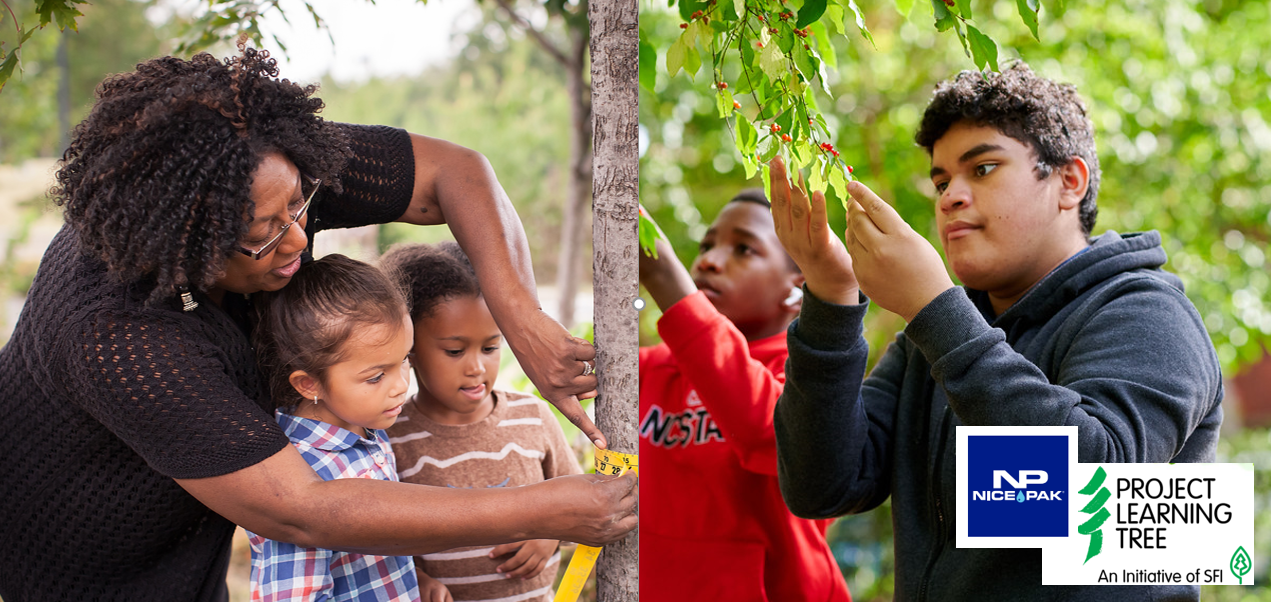
Little Hands, Big Impact: The Importance of Environmental Education
by Jess Kaknevicius, Vice President, Education, Sustainable Forestry Initiative.
What are some of your earliest memories of nature? How did those moments of learning, exploration, and play influence the adult you became?
It only takes one memorable moment in nature to spark a lifetime of curiosity about the natural world. I can’t remember my first “ah-ha” moment in nature, but looking back now, I remember the many hours spent in the forest near my childhood home, which most definitely had an impact on my career choice and passion for the environment.
The missing connection
With time increasingly spent indoors and online, generations of children are losing an opportunity to learn about the world around them and missing out on that important connection to nature. Families and educators can play a critical role in creating and reestablishing this connection.
Project Learning Tree (PLT), a leader in environmental education for over 40 years, provides tools and training to take learning outdoors and support the development of lifelong environmental stewardship—reaching over 145 million students to date.
How environmental education can change the world
Environmental education provides important opportunities for students to become engaged in the big, real-world issues that extend beyond classroom walls. With this perspective, students understand how their studies relate to the complex environmental issues confronting our planet—and acquire creative problem-solving skills to become powerful advocates and knowledgeable consumers. Here are just a few of the benefits of incorporating hands-on environmental education:
- Sparking imagination and enthusiasm: engaging students deeply, resulting in improved performance across core academic areas.
- Strengthening communities: creating connections through community involvement, bringing people together to understand and address environmental issues affecting their neighborhood.
- Learning that transcends the classroom: enabling learners to see the interconnectedness of social, ecological, economic, cultural, and political issues and apply their learning in the real world.
- Enhancing critical and creative thinking: encouraging critical and creative thinking skills, helping foster a new generation of informed consumers, workers, policymakers, and decision-makers.
- Supporting tolerance and understanding: encouraging students to investigate various sides of issues to understand the full picture. It promotes tolerance of different points of view and of different cultures.
- Encouraging healthy lifestyles: getting students active outside addresses mental and physical health issues while also improving learning, mood, and attention.
Partnering to engage youth: a curriculum that uses trees and forests as windows on the world
Project Learning Tree’s partnership with Nice-Pak includes programming for Nice-Pak associates, suppliers, and customers. We will provide the knowledge and opportunities to help children and communities learn bigger environmental lessons by teaching them how planting and caring for the right tree, in the right place, in the right way, is a powerful solution for people and the planet. Together, we will drive awareness around the power of trees and forests, promoting their vital role in human health and as a nature-based solution for climate change. Our work will foster a culture of continuous learning that helps develop the next generation of sustainability leaders. Learn more at plt.org.
